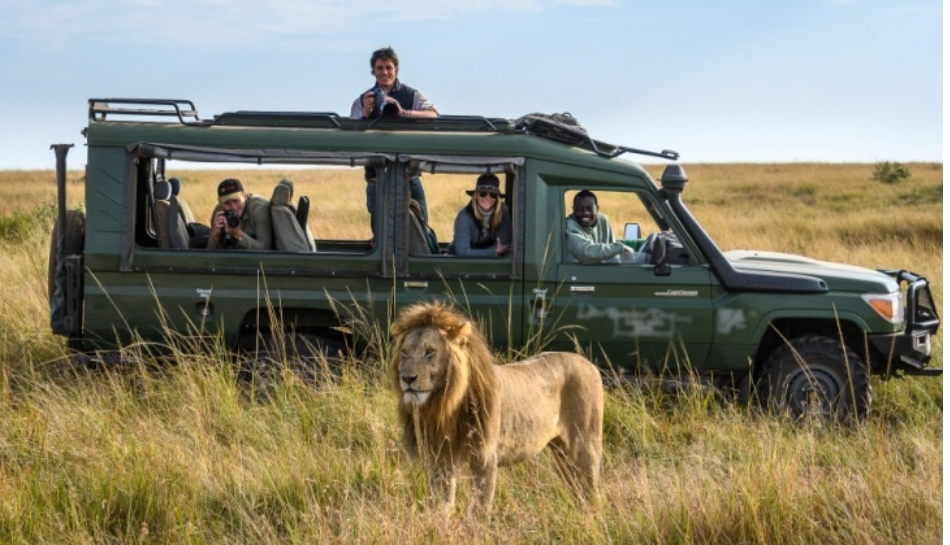Planning a safari in Africa is a thrilling adventure filled with the promise of breathtaking landscapes, incredible wildlife, and unforgettable experiences. Whether you’re headed to the plains of the Serengeti, the lush wetlands of Botswana’s Okavango Delta, or the rugged beauty of Kruger National Park, preparing the right gear can make or break your trip.
Packing for a safari requires a delicate balance between being prepared for all conditions while traveling light and practical. You’ll need to consider the varying climates, the remoteness of some locations, and the fact that many safaris have strict weight limits for baggage (especially if you’re flying on small charter planes between camps). This guide will help you figure out exactly what to pack for your safari in Africa, ensuring you're comfortable, safe, and ready for adventure.
1. Luggage Considerations
Before diving into what to pack, let’s start with your luggage itself. Many safari operators impose strict weight limits, typically 15–20 kilograms (33–44 lbs) per person, including both checked and carry-on luggage. On top of that, soft-sided duffel bags are often recommended (and sometimes required) because they’re easier to stow in the small luggage compartments of safari vehicles and light aircraft.
Best luggage options:
- Soft-sided duffel bag: Lightweight, durable, and flexible.
- Daypack: You’ll need a small backpack for daily game drives or walking safaris to hold essentials like cameras, sunscreen, and water bottles.
- Packing cubes: To stay organized and make it easier to find things in your duffel bag.
2. Clothing Essentials
Dressing appropriately is key to staying comfortable during your safari. African safaris often involve long hours in the sun and early mornings or evenings that can get surprisingly chilly. You’ll also want to blend in with the environment as much as possible (both to avoid startling wildlife and to avoid annoying insects). Stick to neutral colors such as beige, khaki, olive, and tan. Avoid bright colors, especially white and dark blue, which can attract insects.
Clothing tips:
- Light, breathable fabrics: Look for lightweight cotton or moisture-wicking synthetic materials that will keep you cool and dry.
- Neutral colors: Stick with earth tones like khaki, green, and brown to blend into the landscape.
- Layering is key: Safaris often begin early in the morning when it’s chilly, but the temperature can rise dramatically by midday. Dressing in layers allows you to adjust easily.
Must-have clothing items:
- T-shirts and long-sleeve shirts: Bring a mix of both. Long-sleeve shirts offer protection from the sun and bugs while still being lightweight.
- Convertible or lightweight pants: Zip-off pants that turn into shorts are versatile and practical, but you can also bring lightweight trousers and separate shorts.
- Fleece or warm jacket: Evenings and early mornings can be cold, especially in higher altitudes.
- Lightweight rain jacket or poncho: Even in dry season, occasional rain showers can occur, so pack a waterproof jacket that can also serve as a windbreaker.
- Wide-brimmed hat: To protect your face and neck from the harsh African sun.
- Comfortable walking shoes or hiking boots: For game drives, a sturdy pair of sneakers or lightweight hiking shoes will suffice. If you’re planning to do any walking safaris, consider hiking boots.
- Sandals or flip-flops: Great for lounging around the camp or wearing in the evenings.
- Buff or scarf: A lightweight scarf can protect you from the sun or dust, especially on windy days or during long game drives.
- Sunglasses with UV protection: The African sun is intense, so good sunglasses are essential.
3. Accessories and Gear
Having the right accessories and gear can greatly enhance your safari experience. From keeping your camera gear safe to ensuring you're always hydrated, here’s what you’ll need.
Must-have safari accessories:
- Binoculars: You’ll definitely want a pair of good-quality binoculars for spotting wildlife in the distance. While some safari lodges provide them, it's always best to have your own.
- Camera and photography gear: Safaris offer incredible photo opportunities. Consider bringing:
- DSLR or mirrorless camera with a zoom lens (ideally 200–400mm).
- Extra memory cards and batteries.
- Lens cleaning kit to deal with dust.
- A sturdy but lightweight camera bag or case.
- Water bottle: Staying hydrated is crucial, especially in hot climates. Many camps provide water, but having your own reusable bottle is handy.
- Flashlight or headlamp: Camps can be dimly lit at night, and having a hands-free headlamp makes getting around easier after dark.
- Travel adapter and power bank: Check the power outlets for your destination and pack an adapter. A power bank is essential for charging your devices when you’re on long drives or staying in remote areas with limited power supply.
- Dry bag or ziplock bags: Useful for protecting electronics and documents from dust or unexpected rain.
4. Toiletries and Personal Care
While most lodges and camps provide basic toiletries, it’s always good to bring your own. Safaris often take place in remote areas where you won’t have easy access to shops, so be sure to pack all the essentials.
Safari-friendly toiletries:
- Sunscreen (SPF 30 or higher): The African sun is intense, even on cloudy days. Use a high-SPF, broad-spectrum sunscreen to protect your skin.
- Insect repellent with DEET or Picaridin: Malaria is a risk in some areas, and even non-malaria zones can have plenty of annoying insects. A good insect repellent is crucial.
- Lip balm with SPF: The dry air and sun can chap your lips quickly.
- Moisturizer and after-sun lotion: Your skin will be exposed to sun and wind, so bring a good moisturizer to keep it hydrated.
- Wet wipes or hand sanitizer: Safaris can be dusty, and you might not always have access to soap and water.
- Toothbrush, toothpaste, and other personal toiletries: Think biodegradable where possible to minimize environmental impact.
- Medications: Bring any prescription medications, as well as a basic first-aid kit with essentials like pain relievers, antihistamines, antiseptic cream, and band-aids.
- Feminine hygiene products: If needed, pack enough for the duration of your trip, as they may not be readily available in remote areas.
- Shampoo and conditioner: Most lodges provide these, but if you prefer your own, bring travel-sized bottles.
- Eye drops: The dust and wind can dry out your eyes, so soothing eye drops are helpful.
5. Health and Safety Items
Africa is home to some of the most pristine and remote wilderness areas, and while this adds to the magic, it also means you need to be prepared for health and safety considerations. Whether it’s protecting yourself from the sun or ensuring you’re prepared for any medical emergencies, packing smart is key.
Health and safety must-haves:
- Anti-malarial medication: Depending on where you’re going, your doctor may prescribe anti-malarial drugs. Be sure to take them as directed.
- Vaccination records: Some countries require proof of vaccinations, such as Yellow Fever, so check ahead of time and carry your records with you.
- Hand sanitizer and wet wipes: For hygiene when you’re on the move..
6. Documents and Money
In addition to clothing and gear, it’s important to have all your documents in order and keep your money safe. Since safaris often take place in remote areas, it's best to plan ahead and ensure you have everything you need to avoid complications.
Important documents:
- Passport and visa: Make sure your passport is up to date with at least six months of validity and check visa requirements for the countries you’re visiting.
- Travel insurance: Safari trips can be adventurous, so make sure you have comprehensive travel insurance that covers medical emergencies, evacuation, and lost luggage.
- Credit and debit cards: Many lodges accept cards, but it's always good to have some cash on hand, especially for tips or when visiting local markets.
- Cash in local currency: You may need cash for small purchases, tips, or when traveling through local towns.
- Copies of important documents: Make photocopies or take digital photos of your passport, insurance policy, and any other crucial documents.



